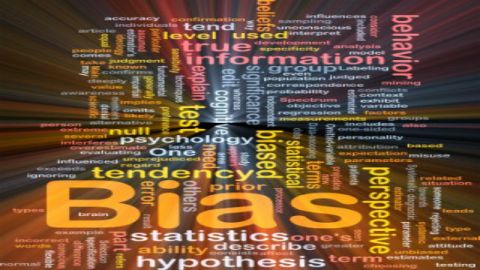Why Some Scientists Are To Blame for Science Denialism Too

It is frightening to observe how persistently people reject evidence that presents some truth inconvenient to their deeper beliefs and self identities; excessive fear of vaccines, or fluoride, or nuclear power…denial of climate change, evolution, the age of the earth! Stunning. Some scientists dismiss such thinking as ‘irrational’. The more enlightened ones, informed by recent research into the realities of human cognition and the limits to perfect reason, accept this denialism as reality, but still blame the lay public for refusing to accept what the bulk of the facts say. May I suggest that there is another community that shares some of the blame for the denial of scientifically developed evidence…some of the scientists themselves.
Science, of course, is not knowledge. It is a process of testing ideas to see where the bulk of evidence lies, a supposedly objective, open-minded and honest pursuit of the truth. But scientists are people too, and several recent examples highlight a dangerous trend in these polarized times; scientists using science not to discover the truth but to say what they want to say, to support what they believe.
Companies and industries do it. Environmentalists and advocates do it too. People or organizations with any sort of agenda do it. They either ask the questions the way they need to ask them to get the answer they’re looking for, or they conduct the actual experiments, or interpret the results, so that science speaks for not the truth, but a point of view or their personal belief.
The journals that publish these papers are complicit. They want the attention, the influence, the money, and overstate the findings in their press releases. The universities at which the scientists work hype this sort of science for the same reasons. Journalists are woefully complicit, naively and simplistically reporting research findings as fact because they came from ‘a study’ done by ‘a scientist’ published in ‘a peer-reviewed journal’. And all the better for the scientific journal or the university or the journalist if the findings speak to some highly controversial issue. A fair case could made that the prestigious Journal of the American Medical Association had no business publishing that specious and nearly useless study suggesting a link between obesity and BPA.
But the scientists who engage in this behavior deserve a great deal of blame as well. Scientists are people too, subject to the same biases and emotions and subconscious beyond-our-free-will instinctive influences on cognition that we all are. No matter how bright or educated, scientists carry these biases into their work, and produce findings colored by those biases, sometimes blatantly. (It’s not so much that a scientist will say anything for money and funding, the naïve ad hominem attack critics use whenever they don’t like what some scientist has found. Usually the money only finds and funds the mind that already has a point of view.)
Of course, we hold scientists to a higher standard, an expectation of fair open-minded honest intellectual pursuit of knowledge…the knowledge we all need for healthy progress and happiness. We’re not expert enough to figure most things out on our own, nor to know the means and methods by which science operates to figure things out on our behalf. So we have to trust scientists to be honest, unbiased seekers of the truth working on our behalf, the way we expect journalists to be fair unbiased presenters of the truth.
And when we sense that that trust has been betrayed, we grow wary, suspicious, skeptical…not just of the findings of any one paper or researcher, but of the process itself…of ‘science’. All this manipulation of research so the facts and evidence support a point of view rather than simply…fairly…honestly presenting what there is to know, is directly contributing to an eroding faith in the reliability of science itself. And that skepticism, created in part by the betrayal of the public’s trust by scientists playing fast and loose with the evidence in order to advance an agenda, is feeding precisely the science denialism that scientists are so ready to simplistically blame on others.





